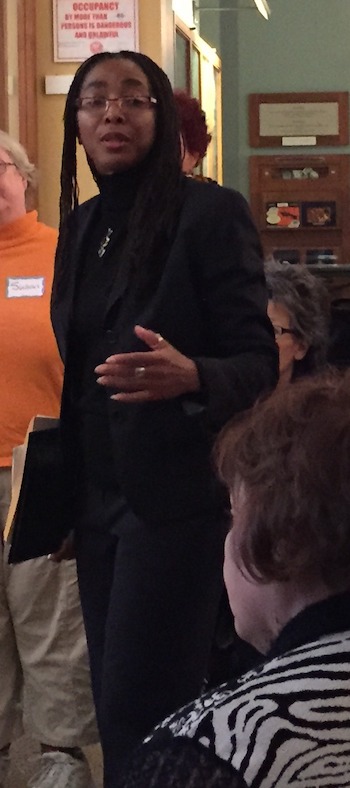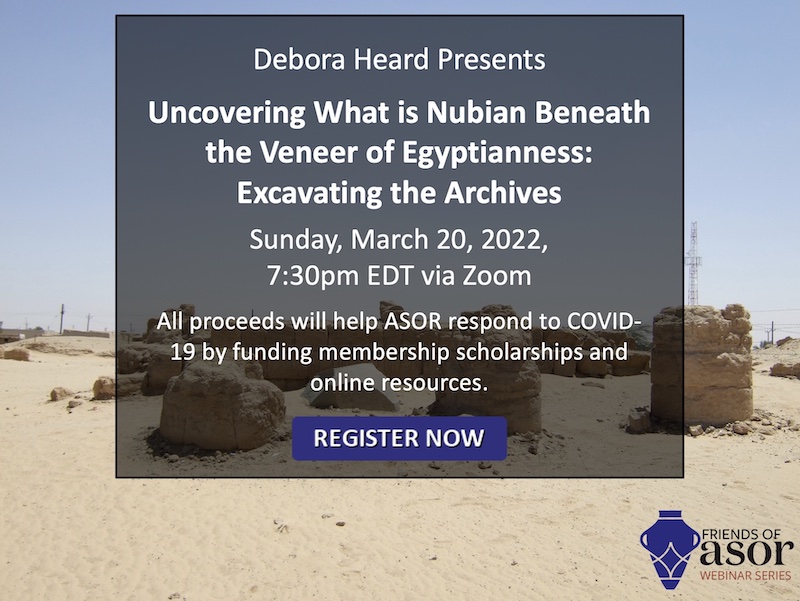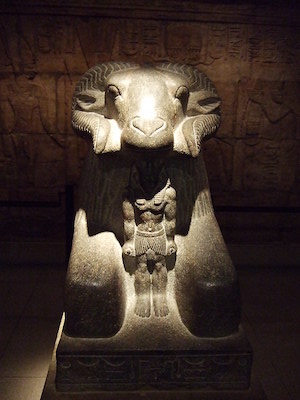
FRIENDS OF ASOR WEBINARS
Uncovering What is Nubian Beneath the Veneer of Egyptianness: Excavating the Archives
Friends of ASOR present the next webinar in our monthly series on March 20, 2022, at 7:30 pm EST, featuring Debora Heard. During the Egyptian New Kingdom colonization of Nubia, Egyptian pharaohs built temples to their gods in the heartland of the Kingdom of Kush. Turning the tables in the 25th Dynasty reign of Egypt, the Kushite kings restored and expanded several of the Egyptian temples in Nubia while building more of their very own. While these temples used Egyptian religious ideology and exhibited Egyptian imagery, a closer examination of the texts and iconography reveals cultural differences that are hidden when viewed with an Egyptian lens. Through an examination of temple architecture, iconography, and inscriptions, this lecture will present a preliminary examination of three Upper Nubian temples – two dedicated to the Egyptian god Amun and one dedicated to the Nubian god Apedemak – in an effort to “uncover what is Nubian beneath the veneer of Egyptianness.”
In the course of this lecture, Debora will share with us her process of excavating the archive of archaeological excavation and inscriptional material for her dissertation as well as provide an intimate look at some of the challenges that minority, first-generation, and working-class students face in pursuing archaeology as a career. Debora will conclude her webinar with a live Q&A session.

For more than fifteen years, she has given public lectures, taught courses, and participated in special programming dedicated to ancient Nubia and Egypt at the Oriental Institute, the Kemetic Institute, Chicago State University, and the University of Nebraska-Omaha. Debora has served as an intern in the Department of Egyptian and Nubian Art at the Museum of Fine Arts in Boston and as a curatorial assistant in the installation of the Picken Family Nubian Gallery of the Oriental Institute Museum in Chicago. She has also excavated at sites in the Nile 4th Cataract region in Sudan. She serves as the organizer and founding member of the William Leo Hansberry Society, which is committed to providing African-descended people with access, opportunity, and training in the fields of ancient Nile Valley and Northeast African Studies.
This webinar will be recorded and all paid registrants will be sent a link to view the recording.

To receive your ASOR member discount, log into the online store. If you are new to ASOR, please click on the “New Visitor Registration” link to register your e-mail address and choose a password for our online store. Once logged in, navigate to “Meeting and Event Registration” to register for the webinar and pay the fee. Each paid registrant will receive a confirmation e-mail when you pay for the webinar. If you do not receive this e-mail, then you are not registered. Please e-mail membership@asor.org with any questions or issues with registering.
You will be e-mailed the Zoom Webinar link in the week prior to the lecture on February 20, 2022. If you do not receive the link by the close of business on the Thursday before the webinar, please e-mail membership@asor.org immediately. This webinar will be recorded and all paid registrants will be sent a link to view the recording.
All proceeds from this lecture are used to fund scholarships for members impacted by COVID-19 as well as increasing ASOR’s online resources, which are free to the public.
WHY SPONSOR A WEBINAR?
Several levels of support from $50-$1,000 are available. Proceeds go towards membership scholarships and towards increasing ASOR’s virtual resources. Each sponsorship is tax-deductible and you can give your friends free registrations to a webinar!
Bronze Level ($50): up to 2 guest registrations
Silver Level ($100): up to 5 guest registrations
Gold Level ($500): up to 20 guest registrations
Platinum Level ($1,000): up to 50 guest registrations
After you sign up for a sponsorship online or over the phone, email the names and email addresses of your guests to Felice Herman at membership@asor.org, who will send your guests a confirmation and the Zoom link before the webinar.
WANT TO SAVE $6.00 ON THE NEXT WEBINAR?
Join ASOR as a member! Click here for more details about discounts for events and other benefits of membership. Memberships start at $40 for the year as an Associate Member.
Not ready to join yet? Become a Friend of ASOR for FREE!
PAST WEBINARS
You can now purchase the link to the recording of any webinar. You can also purchase the bundle packages of all webinars from the 2020-2022 seasons. Please e-mail membership@asor.org for purchase details.
To see a printable pdf of the webinar titles from the 2020-2021 season, please click here. To see a printable pdf of the webinar titles from the 2021-2022 season, please click here.
Pricing:
Members: $6.00 per recording
Non-Members: $12.00 per recording
Bundle of 2020-2021 Webinars: $75.00
Bundle of 2021-2022 Webinars: $75.00
Bundle of 2020-2022 Webinars: $125.00
2021-2022 Season
A World at War: Protecting Cultural Heritage in Times of Conflict
Patty Gerstenblith (DePaul University), Lisa Ackerman (Columbus Citizens Foundation), Andrew Cohen (Government Professional and Cultural Heritage Expert) | May 12, 2022
Preserving Cultural Heritage in Hisban and Umm al-Jimal, Jordan
Øystein LaBianca (Andrews University), Elizabeth Osinga (Umm al-Jimal Archaeological Project), Darrell Rohl (Calvin University) | April 24, 2022
Back to the Field: Recent Discoveries & Summer Plans 2022
Lorenzo d’Alfonso (ISAW), Kathryn Grossman (NC State University), James R. Strange (Samford University) | April 3, 2022
Uncovering What is Nubian Beneath the Veneer of Egyptianness: Excavating the Archives
Debora Heard (University of Chicago) | March 20, 2022
Where Are They Now?: A Preview of 2022 ASOR-Affiliated Fieldwork Projects
Michael Given (University of Glasgow), Xenia-Paula Kyriakou (Florida Gulf Coast University), Stephen Batiuk (University of Toronto), Monique Roddy (Walla Walla University), Kent Bramlett (La Sierra University), Friedbert Ninow (La Sierra University), and Michael Hoff (University of Nebraska-Lincoln) | March 8, 2022
Excavations at Tel Gezer: A Personal Story
Sam Wolff (Tel Gezer Laboratory) | February 20, 2022
Tel Rehov: A Major Bronze and Iron Age City in the Jordan Valley
Amihai Mazar (Hebrew University of Jerusalem), Nava Panitz-Cohen ( Hebrew University of Jerusalem), Nota Kourou (Athens University), Naama Yahalom-Mack (Hebrew University of Jerusalem), Robert Mullins (Azusa Pacific University) | February 10, 2022
The Not-So-Innocents Abroad: The Beginnings of American Biblical Archaeology
Rachel Hallote (Samford University) | January 20, 2022
Synagogues as Jesus Knew Them
James R. Strange (Samford University) | December 2, 2021
Under Jerusalem: The Buried History of the World’s Most Contested City
Andrew Lawler | November 4, 2021
Jesus and Jerusalem on TV: How Do Bible Documentaries Get Made?
Robert Cargill (University of Iowa) | October 17, 2021
Digging the Divine?: Judahite Pillar Figurines and the Archaeology of Israelite Religion
Erin Darby (University of Tennessee) | October 7, 2021
David, Solomon, and Rehoboam’s Kingdom—The Archaeological Evidence
Yosef Garfinkel (Hebrew University of Jerusalem) | September 19, 2021
From Standing Stones to Sacred Emptiness: Textual and Visual Portrayals of Israel’s God
Theodore Lewis (Johns Hopkins University) | August 29, 2021
2020-2021 Season
Making May Matter: Webinarathon to Endow Diversity
Multiple Speakers | May 21-23, 2021
Archaeogaming: Why Video Games Deserve Their Own Archaeology
Tine Rassalle (University of North Carolina at Chapel Hill), Shannon Martino (Morton College), Matthew Winter (University of Arizona), Michael Zimmerman (Rhode Island) | April 18, 2021
How the Bible Became a Book
William Schniedewind (UCLA) | March 21, 2021
The Mysteries of Mithras in Caesarea: Exploring the Cult’s Rites and Remains
Jane DeRose Evans (Temple University), Alexandra Ratzlaff (Brandeis University) | March 11, 2021
Archaeology and the Hidden Religious Culture of Israelite Women
Carol Meyers (Duke University) | February 21, 2021
Meet the Directors—Fundraiser to Support ASOR’s Affiliated Overseas Research Centers
Matthew J. Adams (AIAR), Pearce Paul Creasman (ACOR), Lindy Crewe (CAARI) | February 11, 2021
Early Synagogues, Jesus, and Galilee—A Jewish Perspective
Eric Meyers (Duke University) | December 13, 2020
Home Sweet Home: Ancient Israelite Households in Context
Cynthia Shafer-Elliott (William Jessup University) | October 18, 2020
Priestesses in the Days of Solomon and Ahab
Susan Ackerman (Dartmouth College) | September 13, 2020
Digging Deeper: How Archaeology Works
Eric H. Cline (The George Washington University) | August 9, 2020
American Society of Overseas Research
The James F. Strange Center
209 Commerce Street
Alexandria, VA 22314
E-mail: info@asor.org
© 2023 ASOR
All rights reserved.
Images licensed under a Creative Commons Attribution-NonCommercial-ShareAlike 4.0 International License
COVID-19 Update: Please consider making payments or gifts on our secure Online Portal. Please e-mail info@asor.org if you have questions or need help.

